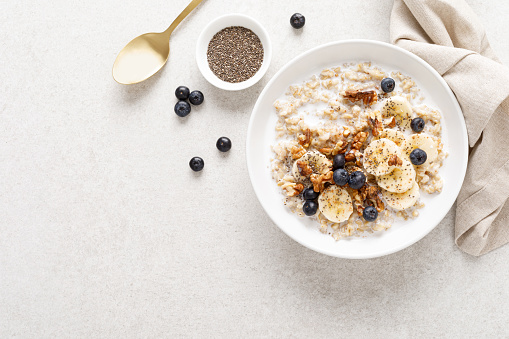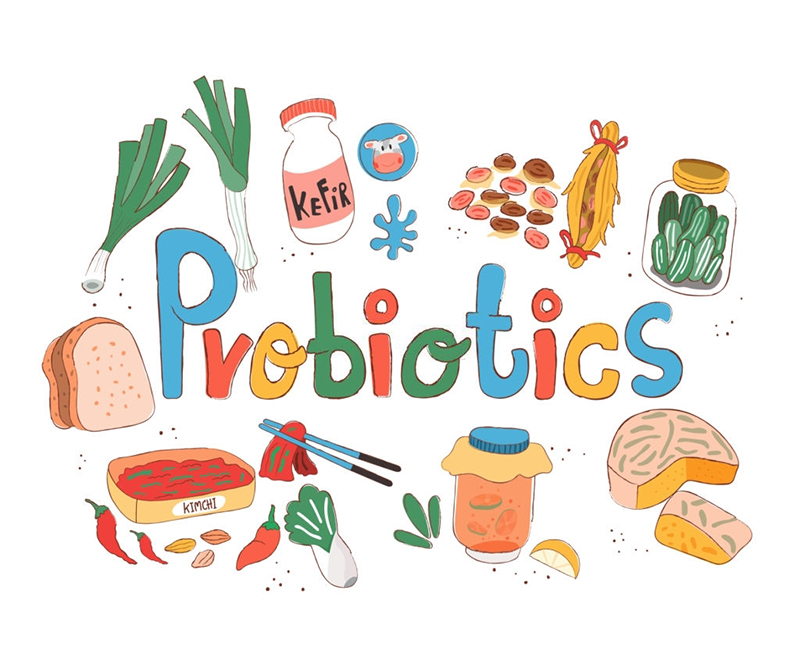Probiotics have become a popular health trend in recent years, with many people incorporating them into their daily routine. But what exactly are probiotics, and how do they affect our bodies? In this guide, we’ll explore the science behind probiotics and how they can impact our gut health, immune system, and overall well-being.
What are Probiotics?
Probiotics are live microorganisms that can be found in certain foods, such as yogurt and sauerkraut, and in supplement form. They are often referred to as “good” or “friendly” bacteria because they help keep your gut healthy and balanced.
The Gut Microbiome
The gut microbiome refers to the collection of bacteria in the gut. When the balance of this microbiome is disrupted, it can lead to a range of health issues, including digestive problems and a weakened immune system. Probiotics can help restore the balance of the gut microbiome, which can promote overall gut health.
How Probiotics Affect Our Bodies
Probiotics can affect our bodies in several ways. Here are some of the ways that probiotics can impact our gut health, immune system, and overall well-being:
Gut Health
Probiotics can promote gut health in several ways. For one, they can help restore the balance of bacteria in the gut, which can reduce the risk of digestive problems and improve overall gut health. Probiotics can also help improve digestion by breaking down food and absorbing nutrients more efficiently.
Immune System
The gut is home to about 70% of your immune system cells. When your gut is healthy, your immune system is stronger. Probiotics can help boost the immune system by restoring the balance of the gut microbiome and promoting the growth of beneficial bacteria.
Mental Health
Research has shown that the gut and the brain are connected. The gut microbiome can impact the production of neurotransmitters, which can affect our mood and mental health. Probiotics may help improve mental health by promoting the growth of beneficial bacteria in the gut.
Skin Health
The gut and the skin are also connected. The gut microbiome can impact the health of the skin. Probiotics may help improve skin health by reducing inflammation in the gut and promoting the growth of beneficial bacteria.
Weight Management
Research has shown that the gut microbiome plays a role in regulating metabolism and appetite. Probiotics may help with weight management by regulating appetite and reducing food cravings.
Types of Probiotics
There are many different types of probiotics, each with their own benefits for gut health. Here are some of the most common types of probiotics:
Lactobacillus
Lactobacillus is a type of probiotic that is commonly found in the gut. It can help reduce the risk of digestive problems and improve overall gut health.
Bifidobacterium
Bifidobacterium is another type of probiotic that is commonly found in the gut. It can help improve digestion and boost the immune system.
Streptococcus
Streptococcus is a type of probiotic that is commonly found in the mouth and throat. It can help reduce the risk of dental problems and improve overall oral health.
Probiotic Foods
Probiotics are found naturally in many foods, especially fermented foods. Here are some examples of probiotic-rich foods:
Yogurt
Yogurt is one of the most popular probiotic foods. It contains live cultures of Lactobacillus and Bifidobacterium, which can help improve digestion and promote overall gut health.
Kefir
Kefir is a fermented milk drink that contains live cultures of Lactobacillus and Bifidobacterium. It is similar to yogurt but has a thinner consistency and a more tart taste.
Kimchi
Kimchi is a traditional Korean dish made from fermented vegetables, such as cabbage and radishes. It contains live cultures of Lactobacillus, which can help improve digestion and promote overall gut health.
Sauerkraut
Sauerkraut is a fermented cabbage dish that is popular in Germany and other parts of Europe. It contains live cultures of Lactobacillus, which can help improve digestion and promote overall gut health.
Kombucha
Kombucha is a fermented tea drink that is becoming increasingly popular. It contains live cultures of Saccharomyces boulardii, which can help improve gut health and promote overall well-being.
Probiotic Supplements
If you’re not getting enough probiotics from your diet, you may want to consider taking a probiotic supplement. Probiotic supplements come in many forms, including capsules, tablets, and powders.
When choosing a probiotic supplement, it’s important to look for one that contains the specific strains of bacteria that have been shown to be beneficial for gut health.






